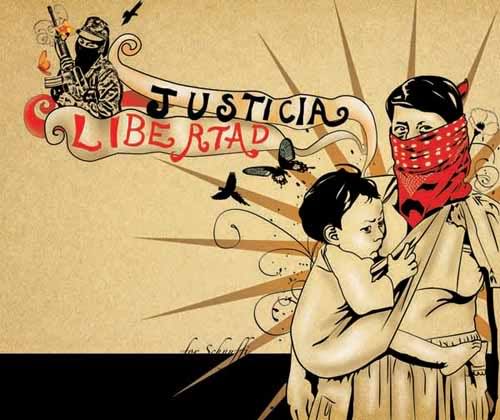
A new edition of the “Especifismo Reader: Anarchist Organization and Praxis” has been made publically available. Topping 120 pages, the updated reader includes several newly translated pieces such as the short political statement “Who We Are, What We Want, The Path We Follow” by Coletivo Comunista Anarquismo in Brazil, the article “Anarchist Advances in Uruguay and Brazil” and the “Interview with the Rio de Janeiro Federation” not included in the first edition of the reader, as well as several excellent though yet to be translated pieces in Spanish. The next steps for this reader are the inclusion of several more pieces by Latin American anarchists and a organization in Mexico, as well as a section of articles called “Towards a North American Especifismo,” with pieces written by North American anarchists influences by the Especifismo Latin American Anarchist tradition.
One of the key concepts of the Latin American Anarchist tradition of especifismo is ”social insertion.” I admit there is a bit of a funny sound to it, but this is the concept they use to define the relation to mass struggles and movements. To them anarchist involvement in the social struggles must be firmly rooted, argues for anarchist values rather the conversion of movements to ”anarchism itself” or a specific political line, and which aims to build popular power (horizontal power and “of the base” I think are similar concepts from Latin American traditions that readers might also be familar with).
My friend Nate of What the hell…? blog takes up the topic with a response/reflection piece after reading several pieces by written by especifist groups as well as my own piece included in the reader above, ”Especifismo: The Anarchist Praxis of Building Popular Movements and Revolutionary Organization in Latin America.” With heaps of comradely respect I feel Nate is missing some of the arguements and the context for the discussion on especifismo and in some part I think he is perhaps pointing out sections of the writings that are unclear and can lend themselves to misinterpretation. Check out his thoughts and my response and I encourage folks to leave comments on his page with their own.
In fact, Nate is on a bit of a roll as of late. Here’s another discussion posting on contemporary anarchist politics with Nate’s review and comments on the mission statements and points of unity of current anarchist organizations in North America. Even better is that it includes links if you would like to read more. Next, is his piece discussing the importance of mass organizing work, along with a draft an article where he hopes to better lay out his perspectives on this. Finally, he writes reviews/quick responses to several of the Furious Five Revolutionary Collective, a 2003-2005 Anarchist-Communist collective based out of San Jose, CA that was influenced by the ideas and writings of the Latin American Especifist anarchists. Their writings are archived on this blog
Filed under: Anarchism, Latin America, Left Organizations, Theory | Tagged: Anarchism, Especifismo, Especifismo Reader, Latin America, Latin American Anarchism, revolutionary organization | 3 Comments »



 Also, here’s a quote from the back cover of this issue that warms my heart from Helen Kellar, the advocate for the blind. Often left out of history is her radical politics as an anarchist and member of the IWW.
Also, here’s a quote from the back cover of this issue that warms my heart from Helen Kellar, the advocate for the blind. Often left out of history is her radical politics as an anarchist and member of the IWW.






